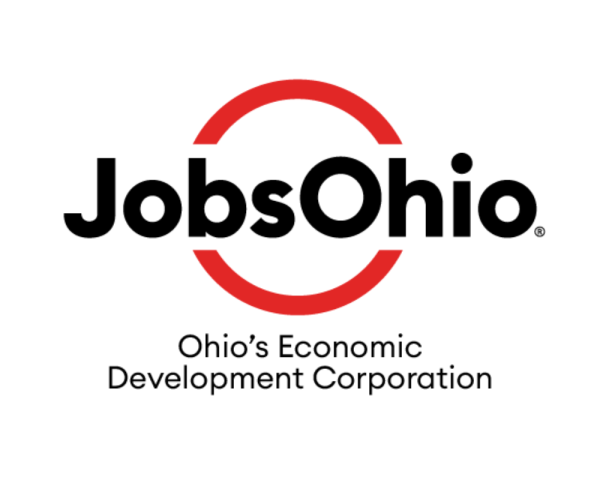Banks have an inherent advantage over insurers when it comes to learning how to use AI most effectively, Aditi Subbarao of Instabase says in this interview with Ron Rock of JobsOhio. Banks simply have more data because their interactions with customers are deeper and more frequent, and banks’ data is organized more accessibly.
So what should insurers learn from banks?
Subbarao says insurers should learn to be braver, especially in using AI for risk management, fraud detection and improving the customer experience. Saying you need to clean your data first is an excuse, she says.
She also says insurers should think about setting up a federation of AI agents, which can pull data from the many silos where insurers store it and provide a clear understanding of a client’s situation.
That would go a long way to eliminating the data advantage that banks now enjoy.
Ron Rock
What inspired you to get into AI and be in the financial services industry with AI.
Aditi Subbarao
I must say, I'm really, really fortunate, because the way I see it, AI is very much kind of the center of activity and innovation in the industry at the moment. Having spent more than 12 years in financial services myself, Ron, I have first-hand experienced the problems and the difficulties that most people working there face in trying to find the information that you need to have to better serve your clients and to do your job better. If there is one thing that any banker or even insurance professional would think of it is, "I wish I knew how to do something. I wish I knew what would happen. I wish I knew."
And I think AI is the one thing that has the potential to change so many things in the financial services and insurance space, just given the amount of data that they need to deal with. And that was very much the driver behind getting into the field of AI and then helping apply that into a space which I know and love.
Ron Rock
Where in the financial services space do you see the biggest potential for AI?
Aditi Subbarao
I actually think the biggest potential exists across the financial services space. AI can genuinely completely transform and revolutionize how practically every single function, every single role, is done in that space.
However, if I had to pick a few areas, I would say this typically lies in risk management, fraud detection and customer experience.
So being able to access, process, analyze and then act upon the huge realms of data from across the market, across trades, across customers or across like so many different sources, and then using that to understand your risk better; and then take proactive actions to manage that risk is going to completely change how risk management updates.
On the fraud side, AI can now analyze and even predict a lot of different occurrences that human beings would have found impossible to, especially at the speed at which they need to be done; like how we now have instant payments. How can you keep monitoring the regulations that you need to on that?
And the last piece is customer experience. We already see banks and organizations that are genuinely customizing their products and services, their overall experience that the customers are getting.
I think these are the three areas that would be top of the line for me in terms of impact in F.S. [financial services].
Ron Rock
So obviously banking is usually at the forefront. When you compare financial services, banking is at the forefront, insurance a little bit lacking. So why do you feel that banking is taking hold of AI quicker?
Aditi Subbarao
That's a very interesting question, you know, and something I've thought about for a long time. And now that I have the opportunity of working across both industries, I would again say there would be sort of three reasons.
The first one is the kind of data that banking has. It's just so much more and so much more frequent. For example, one billion payments are made by the banking industry every single day, and we're not even talking about the deposits or the loans or the investments or trades. It's just payments. On the flip side, claims, which is the most common transaction in the insurance industry, it's orders of magnitude lower. So there's just more data.
A lot of this data tends to be structured, especially because a lot of financial services transactions are either exchange traded or cleared by clearing houses and so on. So banking has had the advantage of much more data, much more frequently, in a more manageable format.
You can use this data to train AI models and then also apply AI on top of it, so that's one major advantage.
The other thing, which is slightly nonobvious, is almost the business model or the organizational structure. And what I mean by that is, in banking, the asset and liability sides of the business are very closely linked together. Whether you're taking deposits and then making loans, or whether you're making investments and then managing the risk, it's all together. It's very closely coupled. Whereas with insurance, somebody who's working on underwriting risk or processing claims is so far removed from the investment side of the business that it doesn't really work very seamlessly, and therefore finding the right applications and using AI so that it can create impact also gets very siloed.
And the last piece, which is in fact something that I find most fascinating, is just the variety of functions that a bank provides and how closely they are embedded in their customers’ lives. I'll ask you a question: On your phone, how often do you open your banking app?
Ron Rock
Daily. Probably twice, three times a day.
Aditi Subbarao
Do you have an app from your insurance company on your phone?
Ron Rock
I do.
Aditi Subbarao
How often do you open it?
Ron Rock
Once every couple of months.
Aditi Subbarao
I think banks are just so much more closely embedded in the day-to-day as compared to insurance companies, so naturally you have far more opportunities and far more applications for AI. I think that's where the advantage has been, but it has been so encouraging to see, especially at ITC, that I think that gap is going to start closing very quickly.
Ron Rock
What can insurance companies learn from the banking industry and how they've adopted AI?
Aditi Subbarao
I'd say this falls into two pieces. The first is slightly the more cultural aspect of it. I would almost say insurance needs to be a bit braver, take a bit more risk. And this is so counterintuitive, because the very DNA of insurance is risk aversive, avoiding risk, protecting from risk. But especially with AI and generative AI and the new advances that are happening there, you need to be brave. You need to go and do stuff which hasn't been done before. You need to experiment. You need to try things out. So what if they fail? Try it and move on. And I think insurance needs to kind of make that mindset shift a little bit, like banking has done and started to do. That would be my first piece of advice, just go and try it and experiment more.
The second piece of advice is kind of what we referred to before, which is, I think insurance has always been more about "here is the protection we can give you; take it on our terms," whereas banking has now oriented a lot more to "what does my customer need, at what point, and how do I structure it that way?" I think the more that insurance starts becoming customer-centric, the more that it starts creating new products and services based on what protection people actually need, the more they will find the natural drive to start adopting AI, because you cannot do it without AI. So those would be my two pieces of recommendation, or like areas where insurance can learn from banking.
Ron Rock
For emerging technologies in this space, there's a lot going on. I mean, you see it across the expo. What are some of the emerging technologies that you think are going to impact the industry?
Aditi Subbarao
I will narrow down your question, if you don't mind, and again, focus on Gen AI, because that's what I do. Even within that space, I'd say, searching across all the data, irrespective of where it lives: Being able to now do that is something we're already seeing live in action. It doesn't matter whether you have really complex variable pieces of data, like a PDF sitting in somebody's shared drive who left two years ago, or like an Excel sheet sitting on some cloud database, you can now literally ask a natural language question to query across all of those sources of data. I think enterprise search is a very powerful technology, which is now already starting to be used.
The second piece that I am really excited about is agentic AI. There you have autonomous AI agents who can now take decisions, perform their actions, and even figure out what the next best action is all by themselves. I think that has the power to change the game completely, to use a cliche. But the best part of it is we are now at a stage where those AI agents will go to the data rather than the data coming to them. So we can operate AI in a federated manner. Especially for industries like insurance, where data is sensitive, it lives in multiple different places. You can't move it across jurisdictions. All of that will be tackled because we now have the ability to do federated AI agents.
Ron Rock
So finally, a lot of leaders in the financial services space are looking for the next best thing, looking for how to transform their organizations. What advice could you give them?
Aditi Subbarao
I'll give you one sentence, which is the correct "textbook" answer, and then I'll give you the other sentence, which is the sort of "come on, guys” answer.
The textbook answer here is, find your why, like the genuine reason why you want to do it, not just because your competitor is doing it, or not just because your marketing department expects some sound bites to provide to your customers, but what is driving you to do it. Then find the right use cases where you can actually see the value, to be able to demonstrate it and see it and feel it across the business, to energize the people. Then find the right partners and the right ecosystem to go do it with. The what, the where and the with whom are what you need to find out.
But there's also the "come on" answer here, which is something I feel more strongly about. One of the biggest obstacles to organizations getting started with AI has been data, and a lot of leaders come to us and say, "Well, I can't get started on AI because my data is not in order. I first need to tidy up my data." In my opinion, that's a chicken-and-egg situation. It's an excuse, because you can actually use AI to clean up your data, to find you the data that will then go back into the AI to actually access all of these records that are sitting across your organization that you think you can't do anything about because they're not clean, but use AI to clean them up. It's almost like, use the AI to get your data shop in order, and then once it is in order, use the AI to give you the insights and make the actions that you need to take.
It's almost like my advice would be, nothing is holding you back. If there's a will, there's a way,
Ron Rock
Thanks, Aditi.








